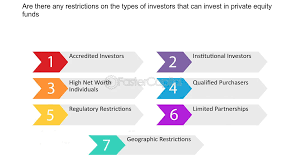Private equity entrepreneurs aspire to transform businesses
Private equity entrepreneurs aspire to transform businesses that are undervalued and stagnant into winners, but not every transaction ends

successfully; failure can expose underlying flaws in business models or undermine investor trust.
Forward earnings guidance may temporarily increase stock prices; however, over time it can damage investor trust and drive away potential investors. Companies with high debt burdens are particularly susceptible to economic fluctuations and may find it challenging to meet their goals under an unpredictable market environment.
Private equity firms‘ impressive returns may inspire envy, but they come at a risk. Research conducted at California Polytechnic State University showed that public companies taking on too much debt during leveraged buyouts face a 20% chance of going bankrupt over 10 years as opposed to only 2 percent among control group firms. Furthermore, companies often owe debt service payments and fees when selling the business which reduces returns significantly.
Private equity firms pose another risk in that, once acquired, they may implement specific plans to increase its worth through drastic cost cuts or restructuring – steps incumbent management may be reluctant to implement – however as private equity firms only have so much time before exiting their investments, they have an increased incentive to act quickly.
Recently, these risks have become more obvious, with members of Congress lambasting the industry on issues ranging from election technology to deforestation and nursing homes. When Carlyle’s Ithaca Holdings purchased Taylor Swift’s catalog in 2013, the firm was already struggling financially and underperforming on the market; consequently they dropped several artists to save money but this decision had devastating repercussions for Ithaca, its investors, and music fans.
Many of these issues stem from how private equity firms consolidate similar assets to generate greater returns for shareholders, yet often places greater burdens on workers, whether nurses struggling to purchase essential supplies or apartment residents paying higher rents to fund property managers’ bonuses. Furthermore, PE firms have been known to lobby lawmakers in secret in order to overturn or water down legislation which might harm their investments.
An effective equity story can help your company navigate these difficulties and build strong investor loyalty. Too often managers are too close to their business or distracted by successes to focus on the core elements of an equity story. An external advisor can provide invaluable assistance by taking a step back from daily operations to offer dispassionate analysis on what investors will respond positively to and identify an ideal investor audience along with the messaging that resonates most effectively with them.








